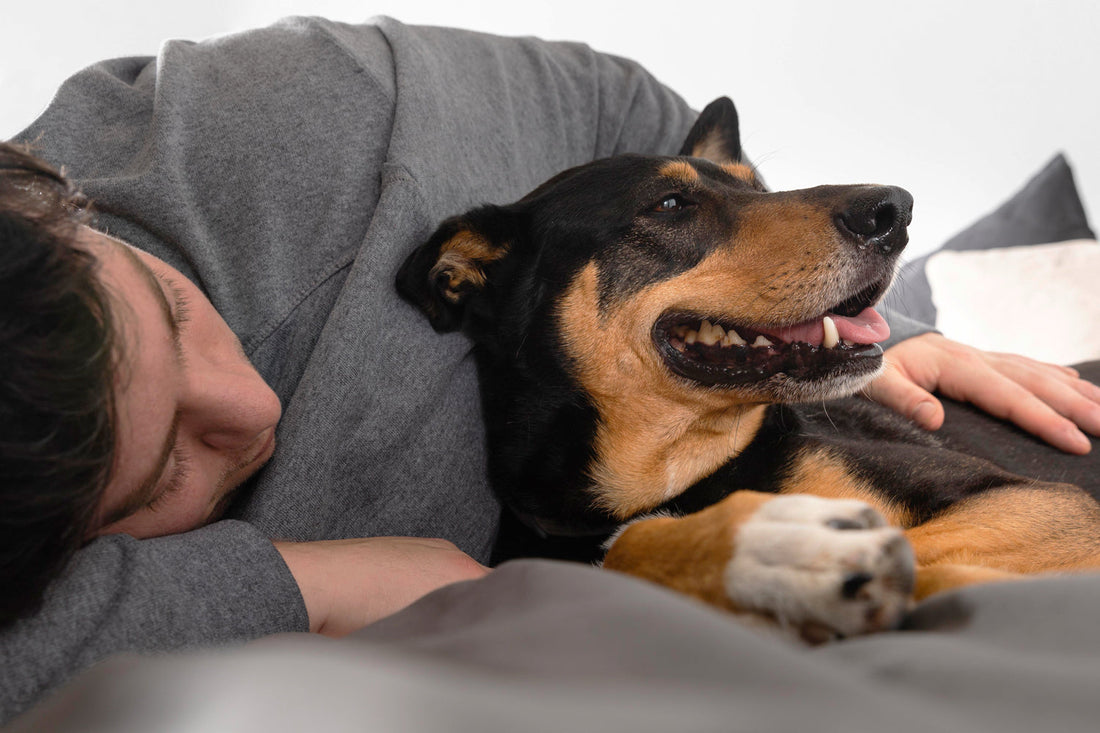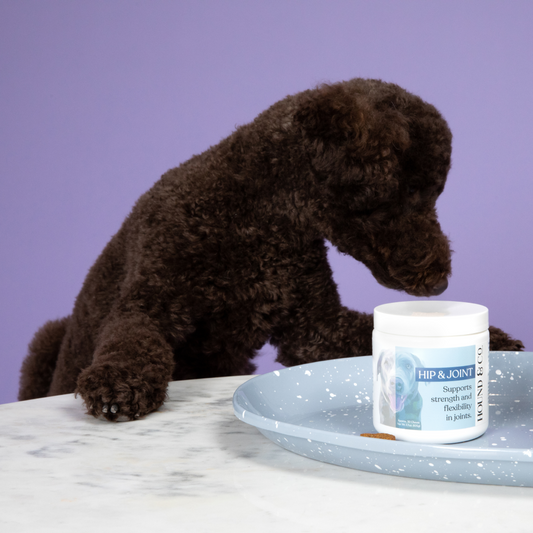What to Do If Your Dog Won’t Stop Scratching at Night

Vet Reviewed by Dr. Jacob Klos, DVM

Why Nighttime Scratching Matters
It’s the middle of the night, and you hear your dog scratching, licking, or shaking their ears—again. If this is becoming a regular thing, it’s more than just an annoyance. Nighttime scratching can be a sign of an underlying issue that deserves attention.
Dogs may be less distracted at night, which can make existing discomfort feel worse. And when scratching interrupts sleep, it affects your dog’s healing, mood, and immune function—just like it would for you.
Top Reasons Dogs Scratch More at Night
1. Environmental Allergies
Dust mites, mold spores, and household allergens often collect in bedding and become more concentrated at night. If your dog scratches more after lying down, this could be the culprit.
2. Food Sensitivities
Some dogs react to ingredients in their food—especially common proteins or grains—leading to chronic skin inflammation and itching, which may peak during periods of rest.
3. Fleas (Even If You Don’t See Them)
Fleas are more active at night, and a single bite can cause intense irritation for hours in dogs with flea allergies. Always rule out this possibility, even if your dog is on a preventive.
4. Dry Skin or Poor Coat Health
Low humidity, excessive bathing, or lack of essential fatty acids in the diet can lead to dry, flaky, and itchy skin—especially noticeable when your dog is at rest.
5. Anxiety or Habitual Behavior
Some dogs lick or scratch out of stress, boredom, or as a coping habit. If you notice licking of the same paw or spot repeatedly, this may be behavioral as much as physical.
Signs It’s Time to Call the Vet
While the occasional scratch isn’t a big deal, ongoing nighttime discomfort should be addressed. Contact your vet if you notice:
- Open sores or bleeding
- Hair loss or bald patches
- Constant paw licking or ear infections
- Scratching that wakes you multiple times a night
Your vet may recommend allergy testing, dietary changes, medicated shampoos, or other targeted solutions based on the root cause.
How to Help at Home
While you work on long-term relief, there are several ways to soothe your dog’s itch naturally:
- Wash their bedding regularly: Use a hypoallergenic detergent and hot water to remove allergens and irritants.
- Wipe their paws after walks: Helps remove pollen, dirt, and residue before bedtime.
- Try a skin-supporting supplement: Omega-3s, probiotics, and antioxidants can reduce inflammation from the inside out.
- Keep skin moisturized: Use a vet-approved conditioner or coconut oil on dry patches if your vet approves.
Consistent care and small daily routines can make a big difference in your dog’s comfort—especially overnight.
Final Thoughts
If your dog is scratching at night, it’s not “just a phase.” It’s a sign their body is struggling with something—whether it’s external allergens, food, stress, or skin health. The good news? Once you uncover the cause, you can help them sleep better, feel better, and live more comfortably.
Don’t ignore the late-night scratching. It’s your dog’s way of asking for help—and now you know how to respond.










